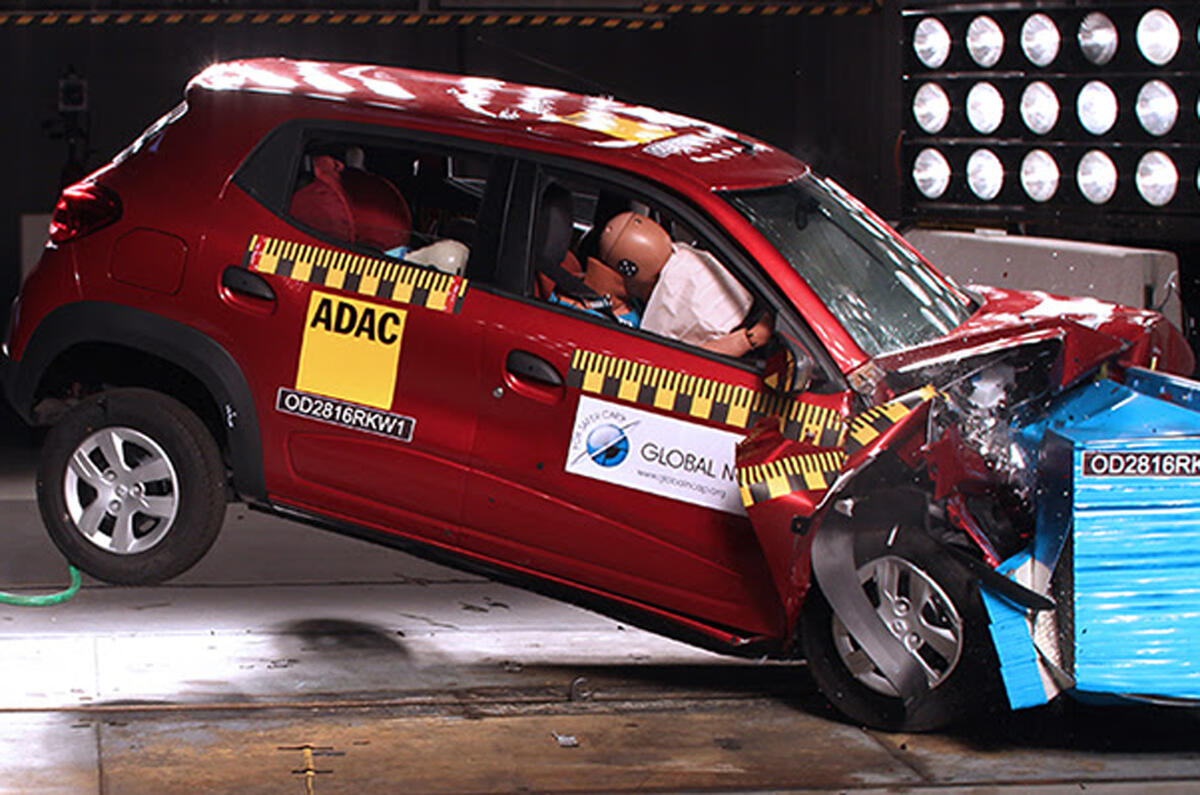The Renault Kwid – one of Renault’s most successful models in the Indian market - has been awarded a one-star Global NCAP crash test rating despite being tested under NCAP's two-tier testing system as the safest model in the range.
Renault applied a series of improvements to the Kwid since it was initially tested, when it scored a zero-star rating from NCAP. It has since submitted the version with the highest level of safety for testing, and despite the changes, it still only scored one star.
In Euro NCAP’s classification, a five-star crash safety rating signifies: “Overall good performance in crash protection. Well equipped with robust crash avoidance technology”, while one star means “Marginal crash protection”.
To achieve a two-star rating in Europe, the Kwid would have had to have displayed “Nominal crash protection”, although it would still be void of any crash avoidance technology, such as automatic emergency braking.
Under the same two-level testing procedure in Europe, Global NCAP first tests a car in base spec, without the addition of any optional safety equipment, then tests it in its safest possible form.
Global NCAP technical director, Alejandro Furas, said: "Often we only test the basic model, as there is no guarantee that safety options will be bought.
In this case we wanted to demonstrate that even if manufacturers claimed that the consumer could purchase safety features, such as airbags, this would only raise the level slightly. Fundamental work needs to be done to improve the car’s safety."
"Legally it just meets the minimum UN regulations. However, in our 64kmh (40mph) test, which is a realistic, real life scenario speed, it fails. Renault would never sell a car like this in Europe or North America, and knows how to affordably make it safe."
"It would cost very little to make the car safe. Work does need to be done to the frame which would not be costly. As an example, a double airbag plus sensors and control unit would not cost more than $150 (around £115)."
Furas explained Toyota's position as a safety leader in India, and pointed out that Hondaa's car performed better in the second test. Furas also told Autocar: "They could make the car safe and still make a profit, they do in other markets. It would reduce the profit, but as you have seen from above question, not to a level to that requires costs to be passed to the consumer through a price increase."
"This is the fourth version of the Kwid. Our goal is to inform consumers and to make manufacturers address safety. NCAPs in other markets have had an important role in influencing the safety of the vehicle fleet. This will be the same in India."
The Honda Mobilio was also tested under the two-level system, and initially scored zero stars for adult protection, but once it had been fitted with double airbags, it scored three stars in the same category.
NCAP explained the Kwid’s low safety rating, saying that the basic version of the car scored zero stars for adult protection, and two for children inside the vehicle. In spite of the top safety-spec Kwid’s driver’s airbag and seatbelt pretensioner, a high level of chest deflection still occurred in a crash; which could cause rib fractures, damage to the heart or internal bleeding.




Join the debate
Add your comment
What's the profit margin on the Kwid?
Clio?
The market decides